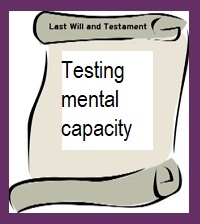 Khaled Noor, Principal of Blackstones Solicitors, continues his commentary on how to make a will which will satisfy English law and Islamic principles.
Khaled Noor, Principal of Blackstones Solicitors, continues his commentary on how to make a will which will satisfy English law and Islamic principles.
Islamic law
Under Islamic Law, a wasiyyah (will) is a gift of property by its owner to another person, contingent on the giver’s death. Al-wasiyyah (the will) includes all the gifts that are made by the deceased during their lifetime. The injunction to a Muslim to leave a will is set out in the Quran, where it is stated that it is the responsibility of God-fearing persons to leave a will behind (Quran 2:180-182), and the prophetic tradition (Hadith): “It is the duty of a Muslim who has anything to bequest not to let two nights pass without writing a will about it.” (Sahih al-Bukhari)
Islamic Law provides comprehensive guidance on inheritance. It stipulates that there are fixed portions of the estate for each heir. According to the Islamic law of succession (mira’th), there are four male and eight female Sharers. A testator can distribute a maximum of one-third of their entire estate according to their own wishes – and no more, unless their heirs consent. Also, it is stipulated that wasiyyah (the will) should be made with a strict sense of justice and equity.
 Additional bequests to a person entitled to inherit a fixed portion of the estate are invalid, and similarly “bequests to any other person are invalid so far as they exceeded one-third of the testator’s property.” The reasons for limiting the voluntary bequests to one third of the value of the estate are set out in a Hadith of the Prophet Muhammad (pbuh) “…Verily if you die and leave your heirs rich is better than leaving them poor and begging…”
Additional bequests to a person entitled to inherit a fixed portion of the estate are invalid, and similarly “bequests to any other person are invalid so far as they exceeded one-third of the testator’s property.” The reasons for limiting the voluntary bequests to one third of the value of the estate are set out in a Hadith of the Prophet Muhammad (pbuh) “…Verily if you die and leave your heirs rich is better than leaving them poor and begging…”
It should also be noted that no one can increase or decrease the share of a Sharer or Residuary, and nor can any valid will deprive a legal heir of their entitlement to the estate. The reasoning behind the setting out of fixed proportions of the estate is to ensure that no will can favour an heir at the expense of the others and so that no heir can suffer an injustice.
Accordingly, bequests to parents are not valid because their right to inheritance as successors is already confirmed in Islamic law of succession. A bequest to anyone other than an heir is valid – provided that it does not exceed the total amount (one third of the estate) set aside for such bequests. As under English law, the wasiyyyah can only take effect after the death of the testator.
Requirements for a valid will
Whether a will is valid depends on the circumstances under which it was made – and, in particular, whether the required legal formalities for making a will have been followed. Under English law, anyone can make a will provided that they have the mental capacity to do so and that they are at least 18 years of age on the date on which they make their will (“privileged wills”, which can be made in certain circumstances by members of the armed forces and seaman at sea, are an exception to the age rule).
 The basic test for mental capacity is set out in Banks -v- Goodfellow [1870] LR 5 QB 549 – which is known as the “Banks -v- Goodfellow” test. This requires the testator to understand three things:
The basic test for mental capacity is set out in Banks -v- Goodfellow [1870] LR 5 QB 549 – which is known as the “Banks -v- Goodfellow” test. This requires the testator to understand three things:
(a) the nature of the act and its effects;
(b) the extent of the testator’s property; and
(c) the claims to which the testator ought to have regard.
It is also required that the testator must not have been suffering from any delusion. Section 1(2) of the Mental Capacity Act 2005 states that a person is assumed to have capacity unless it is established that they lack capacity. Section 2(3) of the same Act says that lack of capacity cannot be established merely by reference to:
(a) a person’s age or appearance, or
(b) a condition of his or hers or an aspect of his or her behaviour which might lead others to make unjustified assumptions about their capacity.
Islamic law states that every adult Muslim (a man or a woman) who is of full age and is mentally sane has the legal capacity to make a will or gift and dispose of one third of their property in accordance with their own wishes. An infant/minor cannot make a will. As regards mental capacity, it is required that the testator is capable of distinguishing between good and bad; that he or she should realise that he or she is doing good and not depriving anyone of his or her rights; and that he or she is not disobeying their creator, Allah.
It should be noted here that a person who is on their deathbed and who is in the last minutes of their life (Mard al-Maut) cannot make a valid gift (“Hibah” in Arabic), on the grounds that the doner is likely to lack the mental capacity to understand the consequences of their act. Moreover, “the property of a man on deathbed actually becomes the property of the heirs.”
Formalities of making a will
There is no prescribed form or manner of making a will, and there are no legal requirements that a will should be written and/or witnessed by a solicitor or qualified lawyer. Traditionally a will by word of mouth was equally as valid as a written will. However, there are some formal requirements, set out in section 9 of the Wills Act 1837 (as amended by section 17 of the Administration of Justice Act 1982) which must be observed if the will is to be valid. These state that the will must be:
(a) in writing, and signed by the testator;
(b) signed by the testator in such way as to make it absolutely clear that they intend to give effect to the will;
(c) signed by the testator in the presence of two witnesses; and
(d) signed by the witness in the presence of the testator.
The word “writing” used here includes typing, printing, photography and braille. An “acceptable signature” can include the testator’s thumbprint, initials or an X or similar mark. To comply with the requirements for signing the will, it is highly recommended that the testator and both witnesses should remain in the same room until all have signed the will.
•Khaled Noor is a Barrister-at-Law (N/P) and Solicitor. He is the Principal of Blackstones Solicitors, specialising on Immigration, Family Law and Commercial Property and can be contacted on: Noor@Blackstonessolicitors.com
•Part 1 of this article looked at the general requirements for making a valid will. You can read it here:
Where there’s a will, there’s a way… Part 1
●Read more articles on the law by Khaled Noor of Blackstones solicitors:
Articles
●Watch East London’s weekly news magazine programme,
live at 10pm every Tuesday and on demand all week:
The Tuesday Show
 East London News A Force for the community…
East London News A Force for the community…




